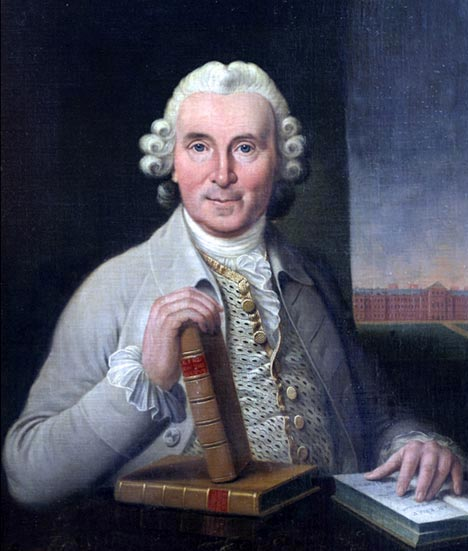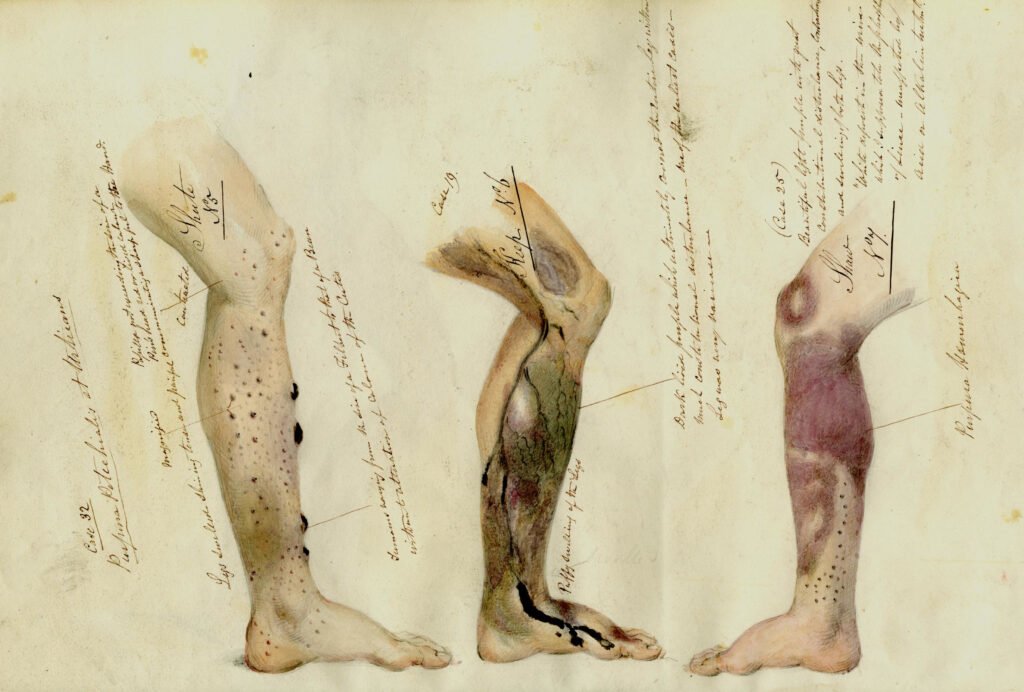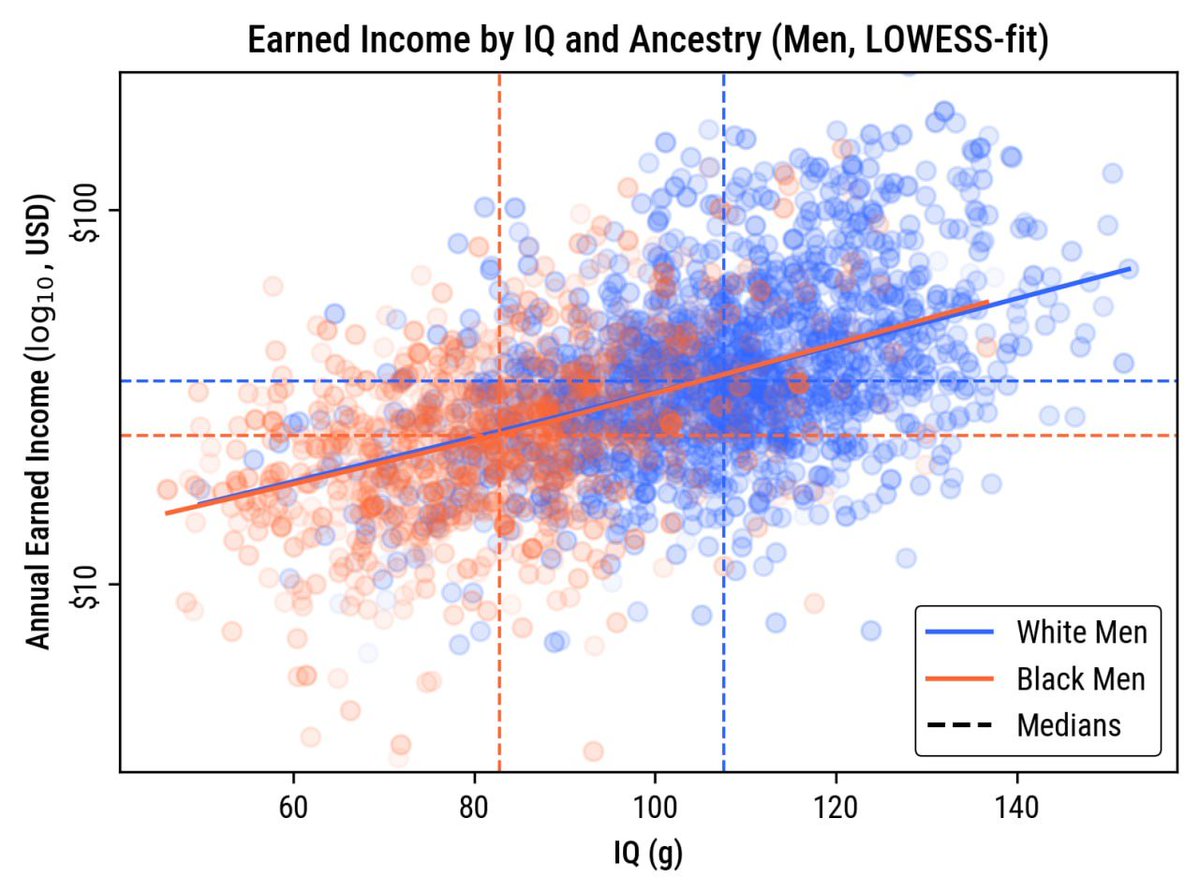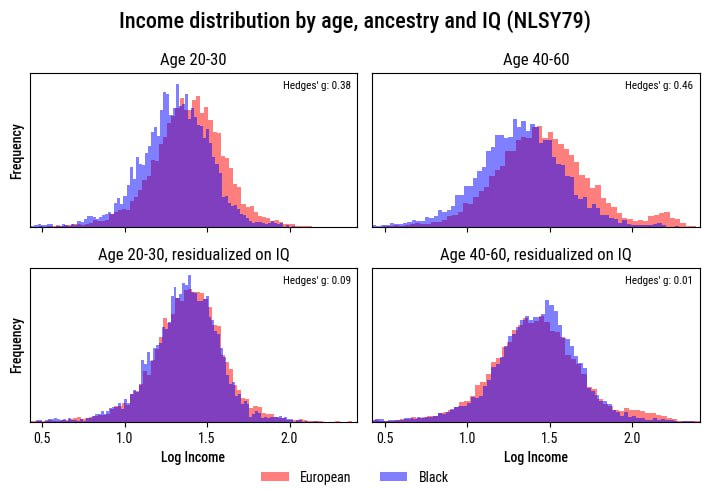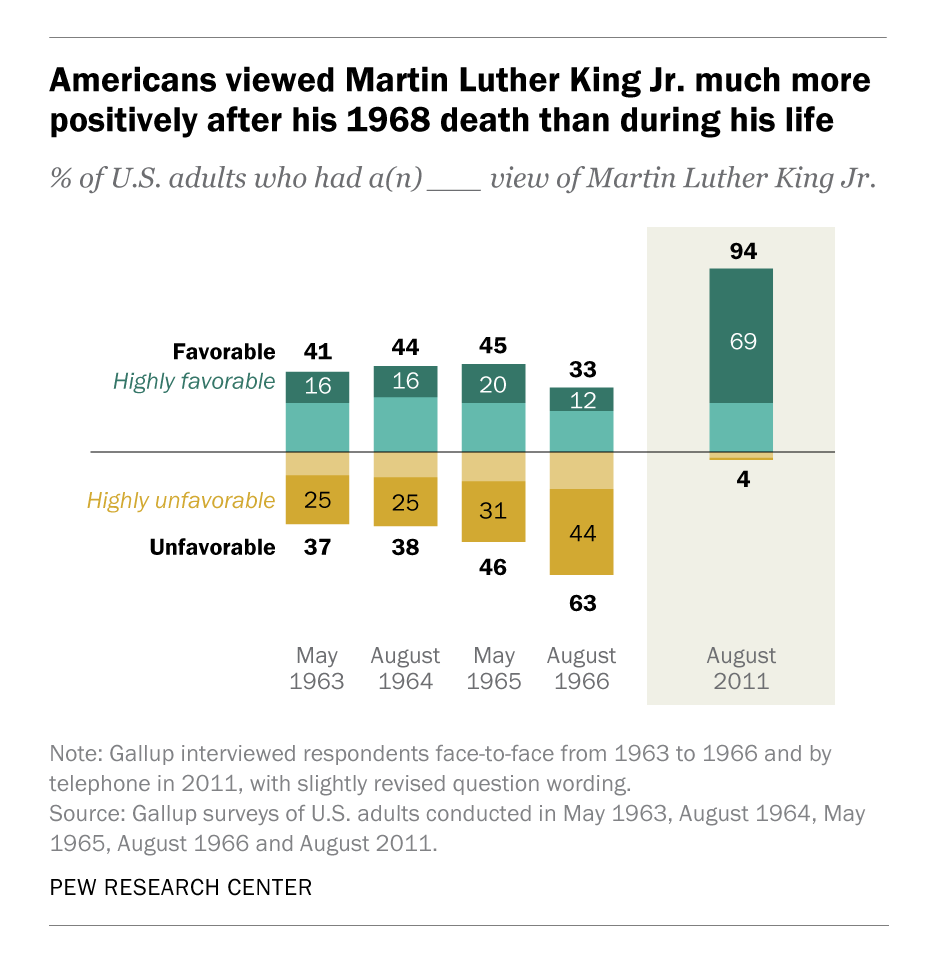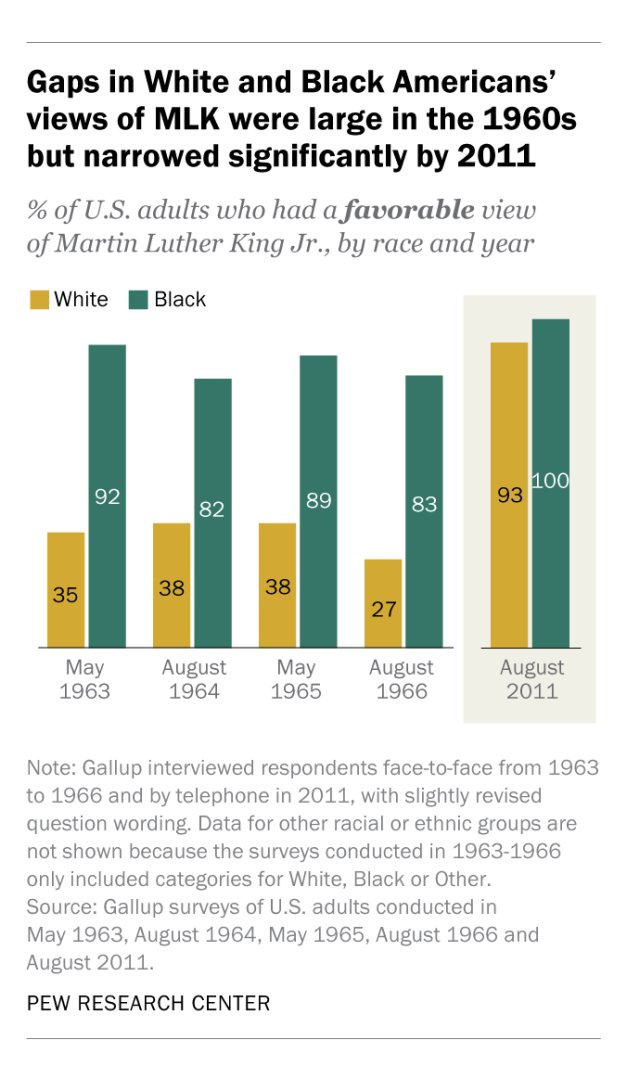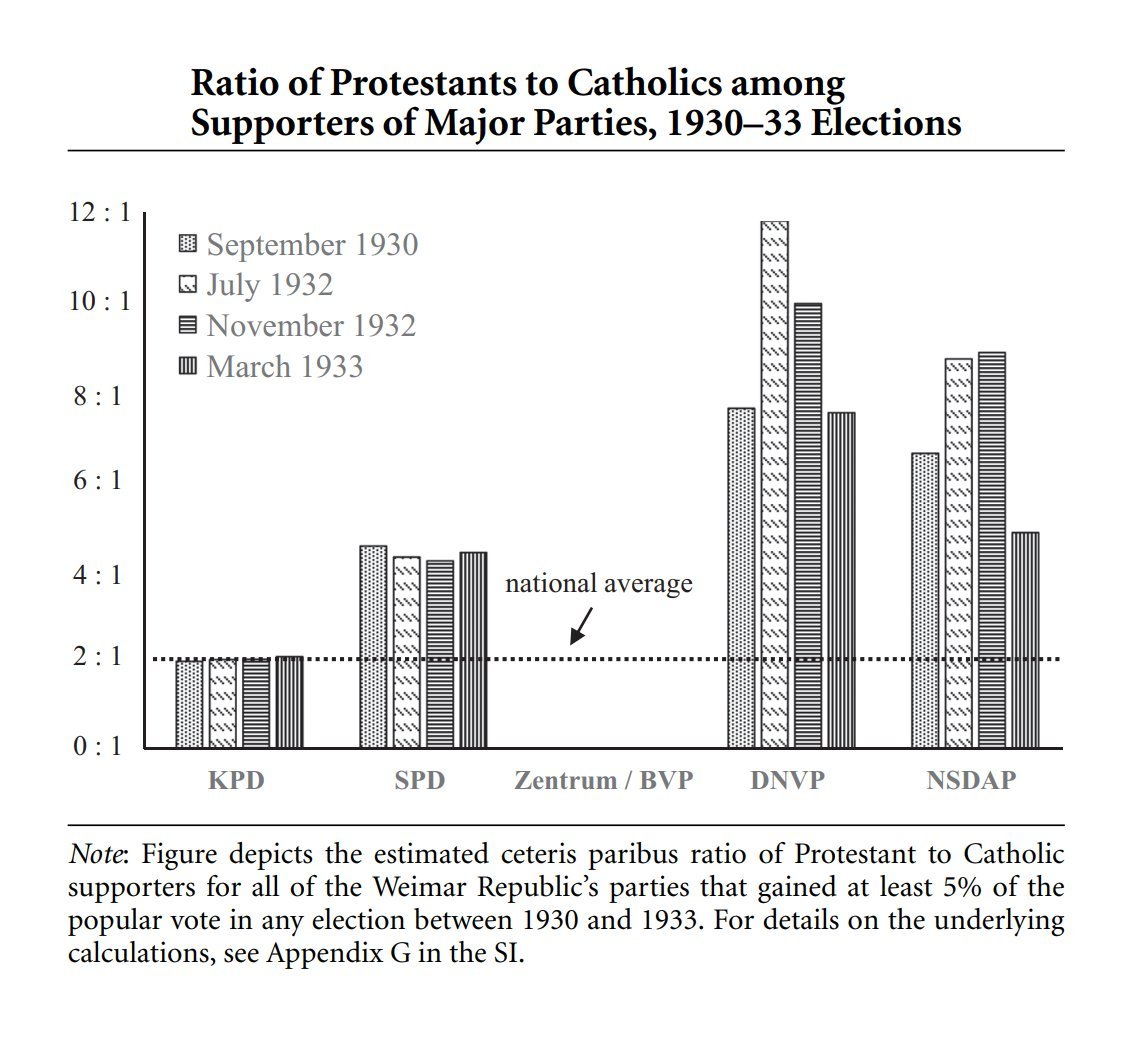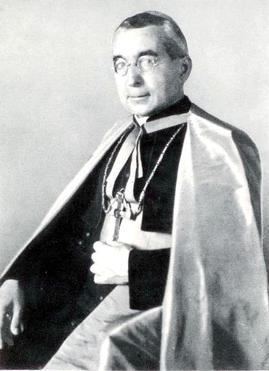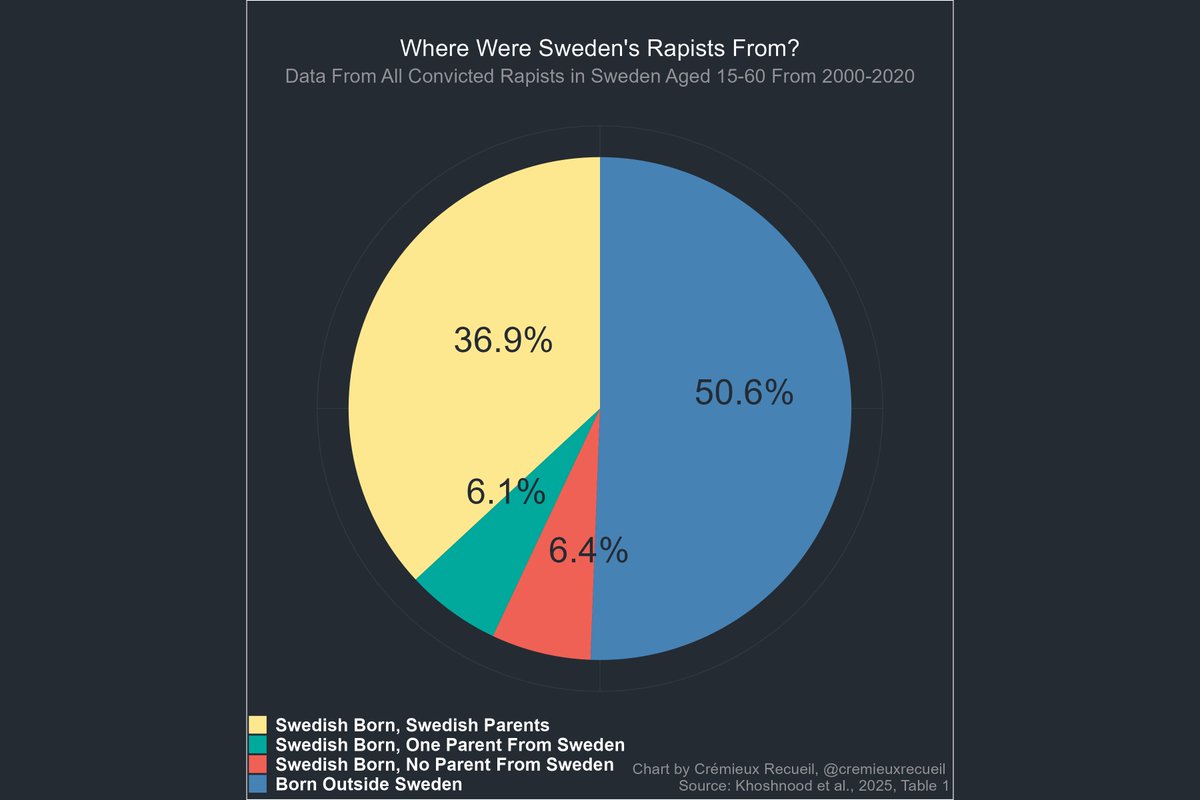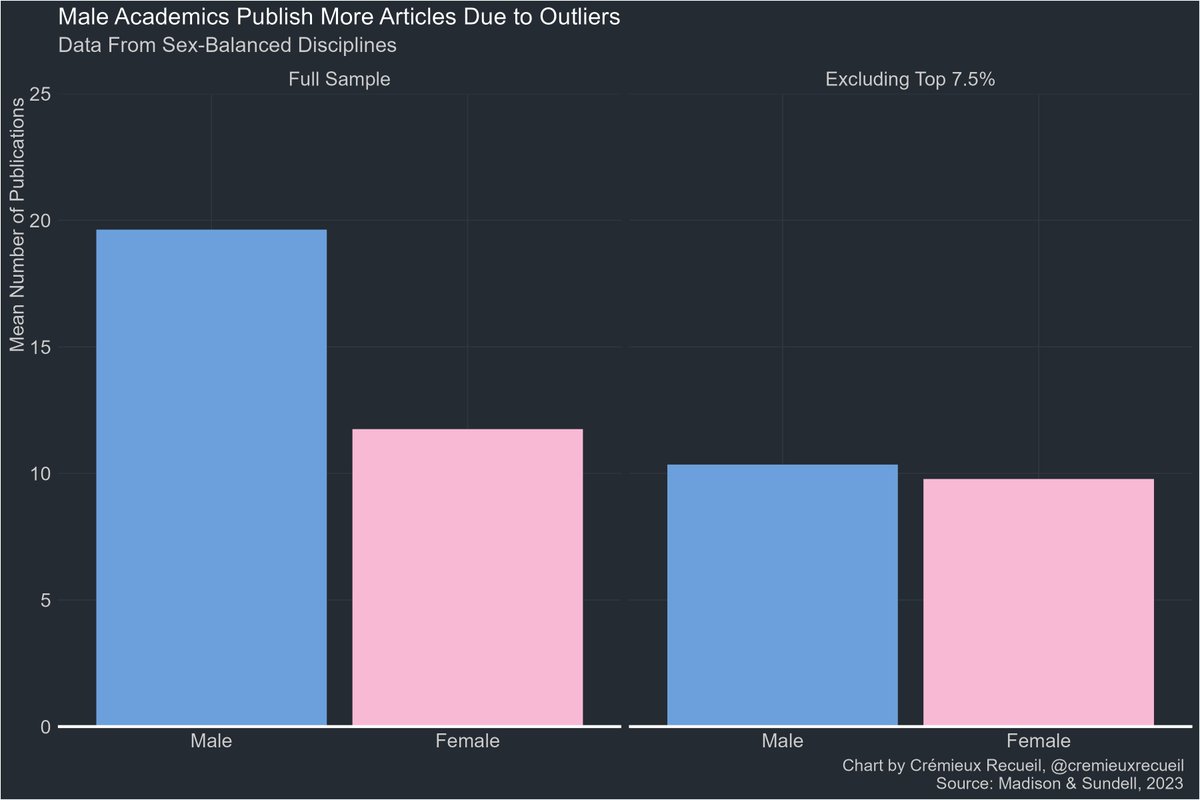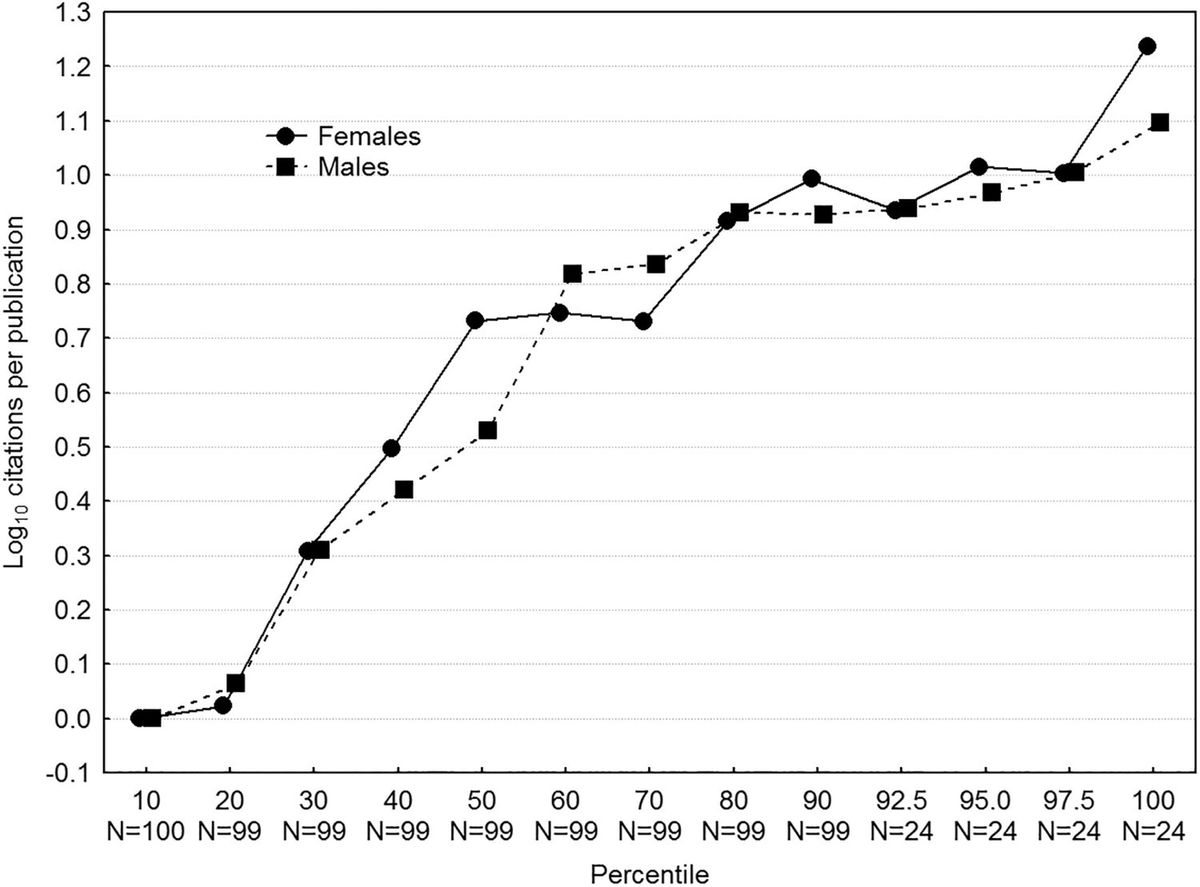This is a really nice JMP that deals with America's first big run-in with machine politics: Tammany Hall.
So, what effect did Tammany Hall have on the performance of the New York Police Department, and was Bill the Butcher right?🧵

So, what effect did Tammany Hall have on the performance of the New York Police Department, and was Bill the Butcher right?🧵
https://twitter.com/B_Eichengreen/status/1724492364159303875

For background, New York's Tammany Hall was founded as part of the Tammany Societies, which were groups dedicated to celebrating Native American culture, from its titles, to the languages, to the dress.
This group's early meeting locations were, appropriately, called "Wigwams".
This group's early meeting locations were, appropriately, called "Wigwams".

Early on, Tammany membership was for "native-born patriots" only. But on April 24, 1817, hundreds of Irishmen broke into a meeting and demanded entry.
A few years later, Tammany let them in and embraced universal manhood suffrage.
Here's how some people saw that idea:
A few years later, Tammany let them in and embraced universal manhood suffrage.
Here's how some people saw that idea:

These immigrant groups were eventually leveraged by Democratic New York Mayor Fernando Wood to break Tammany's back by ousting the Bank Democrats from the Hall, elevating his own stature in the organization. 

This sort of internal politicking continued and, eventually, William "Boss" Tweed became the hall's Grand Sachem and the man who would earn the hall its reputation for corruption. 

Tammany had by now long been focusing on naturalizing immigrants to elect Democrats: immigrants go in, Democratic votes come out, as the picture shows.
But Tweed made earning votes more about patronage: vote for us, earn a cushy job—and don't forget to tell your friends!
But Tweed made earning votes more about patronage: vote for us, earn a cushy job—and don't forget to tell your friends!

That's what the paper is about: the effect of patronage on Democratic party performance and the performance of the NYPD, 1900-16.
To identify patronage hires, Leucht looked at police applicants who did poorly on the department's standardized tests but nevertheless got hired.
To identify patronage hires, Leucht looked at police applicants who did poorly on the department's standardized tests but nevertheless got hired.

The rules say you need a score of at least 70% to get on the force. Anyone hired under that cutoff must have been a patronage hire.
Since this graft often happened on ethnic lines, one way to identify patronage hires above the line is to exploit that fact, to clear effect:
Since this graft often happened on ethnic lines, one way to identify patronage hires above the line is to exploit that fact, to clear effect:

And this strategy worked for Tammany: when a patronage hire happened, the number of registered Democrats in that hire's neighborhood greatly increased. 

This probably also matters for politics, because registered voters predict party wins.
But maybe these newly-registered voters don't go out and vote like non-patronage Democrats.
Well, as it turns out, they do: electoral support goes up, and it goes up closer to the recipient.
But maybe these newly-registered voters don't go out and vote like non-patronage Democrats.
Well, as it turns out, they do: electoral support goes up, and it goes up closer to the recipient.

In the period after these cops were hired, they were rewarded with promotions if they helped out the Democratic party more.
Moreover, unlike regular cops, they were no less likely to receive a promotion if they were issued fines.
Moreover, unlike regular cops, they were no less likely to receive a promotion if they were issued fines.
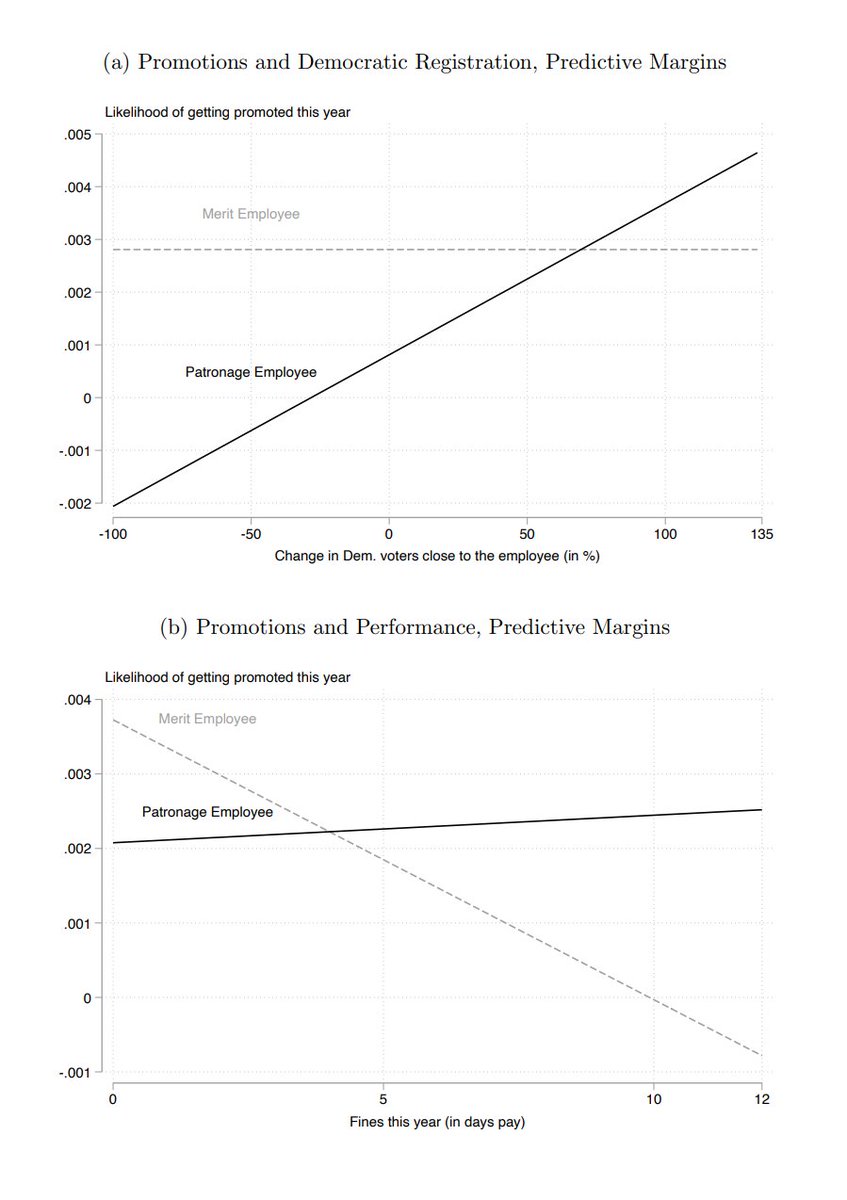
Now as it turns out, cops who did better on their standardized exams earned fewer fines in the line of duty.
But patronage employees did worse on those exams, and due to corruption, they could get by doing less, too. So patronage robustly associated with earning more fines:
But patronage employees did worse on those exams, and due to corruption, they could get by doing less, too. So patronage robustly associated with earning more fines:

These patronage employees received 22.6% more fines for negligence than their meritorious counterparts.
On a subset of employees with test scores, it was possible to show that test scores were valid, but they didn't explain this gap:
On a subset of employees with test scores, it was possible to show that test scores were valid, but they didn't explain this gap:

The Tammany machine engaged in handing out the "spoils" of political wins until the 1930s, and the machine worked: patronage politics made Democratic voters, and it also made negligent cops.
The abandonment of meritocracy had consequences.
The abandonment of meritocracy had consequences.
Bill the Butcher died an opponent of Tammany less because of this and more because he hated the Irish, but given what Tammany did, it was good that at least someone opposed it.
Source: lukasleucht.com/pdf/JMP_Leucht…
Source: lukasleucht.com/pdf/JMP_Leucht…
• • •
Missing some Tweet in this thread? You can try to
force a refresh



